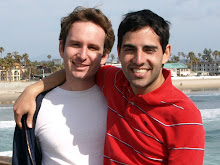Over at
Out of the Blue, a blog written by college instructor and my friend Bluegrrrrl, she posted an intriguing article titled "Militarism vs. humanitarian law" (on her blog, scroll down to Wednesday, November 29, 200 to read it). In it she discusses Mary Kaldor's book "Beyond Militarism, Arms Races, and Arms Control." Kaldor is professor and Director of the Centre for the Study of Global Governance at the London School of Economics and Political Science.
It's a great post and it really gave me something to think about. I've posted my response here. Just a few things to think about on this bitterly cold Minnesota Sunday.
The one thing I would add to this discussion is that there doesn't seem to be much of a focus on education and poverty in this. Perhaps because it deals primarily with militarism.
In her premise bluegrrrrl writes that Kaldor says,
"contemporary warfare is driven primarily by conflicting political ideologies " and I would have to respond that this appears to be at once an overly narrow and overly broad premise. Narrow because it seems to discount issues of poverty, education (or lack thereof), tradition, language, history and religion. Broad because, if it is meant to include all those things, then it becomes unwieldy and leads to a (perhaps) simplistic conclusion that application of international law, by itself, would be a deterrent to war/ violence.
My problem stems from the question that, after all, if one is dealing with a group who is fundamentally opposed to the rule of (western) law, what could be gained from applying it?
To me it seems as though Kaldor is still advocating a top-down mode of "squeezing" or "attacking" her opponents. Replacing violence on the battlefield with violence in the courtroom. Or, at least, the possibility of it. After all, who controls "justice" ultimately?
So, for an addendum to her model, I would turn to what I conceive as a "grassroots" model that addresses the needs of the people, offering education and addressing poverty. Most of all, I would suggest doing away with the fiction that we live in a globally competitive environment that necessitates fighting over intellectual, cultural and natural resources. In many ways the U.S.'s message to the world is "Give us your best and brightest and we will give you McDonald's, KFC and Wal-Mart." This is the old smallpox blanket trick on a global scale.
I'm adding my vote to what spadoman, another commenter to this post and frequent Out of the Blue reader, wrote
said in a comment, "look for the circumstances that caused the crime and try to stop it from happening again."
Don't get me wrong, I still think Kaldor's suggestion is preferable to Bush's non-answer answer to violence (More vioence! How stupid). She is supporting a narrative that makes room for answers to conflict that don't necessitate the killing of civilians or soldiers and I absolutely appreciate that.
Labels: bluegrrrrl, comment, criticism, crosspost, dialog, education, humanitarian, Kaldor, law, militarism, opinion, politics, poverty, violence, war
 Day 1: January 2, 2007
Day 1: January 2, 2007

 Travel day
Travel day San Ignacio, Belize
San Ignacio, Belize





 Hotel: Jaguar Morningstar
Hotel: Jaguar Morningstar












